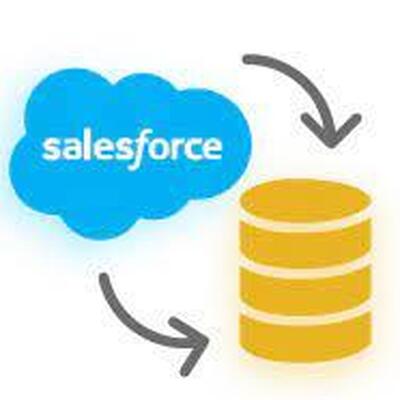Get your data from salesforce cloud
الجسم
A natural disaster can strike at any time. For this reason, they want to show some of the main advantages of storing your key information in the cloud in the event of a natural disaster, so your business can continue operating as normally as possible.
Why the cloud?
The cloud can store your company information in a remote location instead of local hard drives or storage. So, in a natural disaster like a hurricane or earthquake, you don't have to worry about losing information worth thousands or even millions of cash.
You can use cloud storage to save everything, including customer history, emails, photos, company files, etc. there are two applications in the cloud that allow you to enjoy all the benefits of having your Salesforce data protection in the cloud in the event of a natural disaster.

Backup and access to your data from anywhere
An advantage of having information in the cloud in a natural disaster is that you can access your data, such as sales, invoices, accounts receivable and much more, from anywhere. When choosing a provider, they recommend one with a data centre in a geographically distant location from where you are. This will help you avoid losing original and backup copies of your application during a disaster.
Suppose you use the SYNC data integration app to integrate your ERP and CRM or IoT Pulse to sync data from your ERP and other systems using the Internet of Things. Even if you ever need to evacuate due to a storm or other natural disaster, you'll still be able to access your data no matter where you go.
One of their clients was located in an area that experienced record flooding and storms, losing servers, files, and access to one of their most important assets: accounts receivable files. They had a real collection dilemma, which could have affected their income and profits. Because they had that information stored in the cloud, Salesforce data backup and recovery could help them get their operations off the ground quickly, allowing them to maintain their cash flow by not losing access to sales and accounts receivable information.

Save time and money
By having your information stored in the cloud, you can also save time and money. For example, when preparing for an impending disaster, you no longer have to worry about purchasing and installing backup servers, disks, drives, or additional staff. With a cloud provider, you only pay for the services you use. So if you compare traditional disaster recovery solutions, using a cloud solution only pays a fraction of that cost, saving you a lot of money. And if the disaster doesn't happen or the effects are less than expected, your costs will be even lower.
Additionally, if there is a disaster and your computers and local servers are damaged, storing your data in the cloud will help you recover your data in no time. You can instantly access all your Salesforce data recovery through the internet and transfer it immediately to your new equipment.Be sure to see their applications to synchronize your information in the cloud, and contact us if you want to learn more about the advantages of having your data in the cloud.















تعليقات